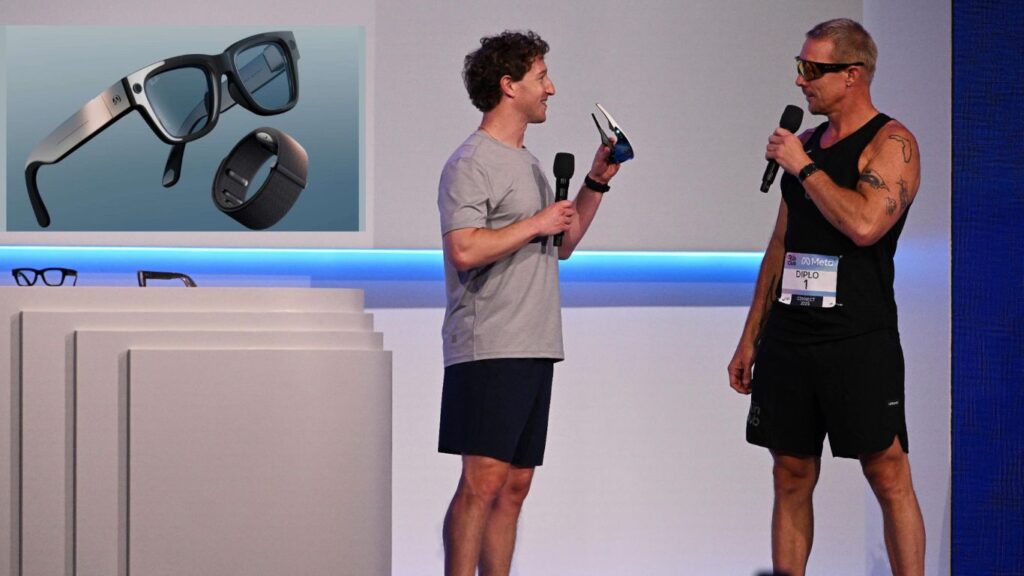Meta Unveils AI-Powered Smart Glasses With Built-In Display and Neural Wristband

Meta Unveils AI-Powered Smart Glasses With Built-In Display and Neural Wristband
Zuckerberg bets big on AI wearables as scrutiny over Meta’s products continues
Meta has launched a new generation of smart glasses powered by artificial intelligence, marking its latest push to make wearable tech a mainstream accessory. The announcement was made by CEO Mark Zuckerberg during the company’s annual Meta Connect conference in California.
Developed in partnership with Ray-Ban and Oakley, the new Meta Ray-Ban Display glasses feature a high-resolution, full-colour screen embedded in the right lens. The display remains invisible until activated, allowing users to conduct video calls, read messages, or interact with Meta AI without obstructing normal vision. The device also includes a 12-megapixel camera and offers around six hours of mixed-use battery life.
Each pair comes with the Meta Neural Band, an electromyography (EMG) wristband that detects subtle finger movements and translates them into commands, enabling hands-free control of the glasses. Demonstrating the technology on stage, Zuckerberg hailed it as a “huge scientific breakthrough.”
Alongside the $799 Ray-Ban Display, Meta introduced the Oakley Meta Vanguard glasses for sports enthusiasts, priced at $499, and the second generation of Ray-Ban Meta glasses, starting at $379. Analysts suggest smart glasses could succeed where the company’s costly Metaverse gamble struggled, since glasses are “an everyday, non-cumbersome form factor.”
However, some experts remain cautious. “The Ray-Bans have done well because they’re affordable and discreet,” said Leo Gebbie of CCS Insight, adding that higher-priced models may face adoption challenges.
The launch comes amid heavy criticism of Meta’s platforms. Just hours before the event, activists and families of suicide victims protested outside the company’s New York headquarters, demanding stronger safeguards for children on Facebook, Instagram, and WhatsApp. Meanwhile, two former safety researchers recently testified in the US Senate that Meta downplayed internal findings about potential harm to children from its VR products—claims the company dismissed as “nonsense.”
Despite the backlash, Zuckerberg is doubling down on AI investment. Meta is spending hundreds of billions of dollars on US data centres, some nearly the size of Manhattan, while aggressively recruiting talent from rival firms. The company says its goal is to build “superintelligence” — AI that surpasses human capabilities.












